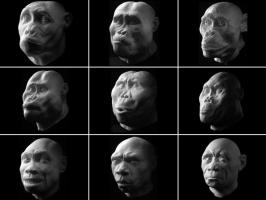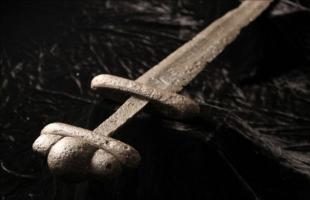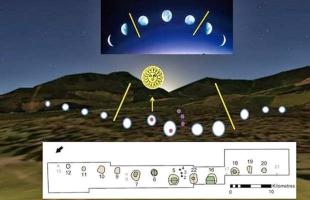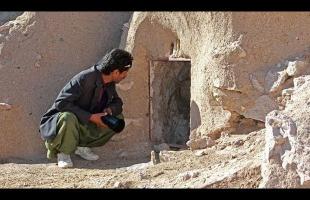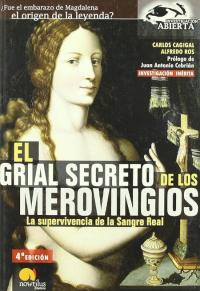Copy Link
Add to Bookmark
Report
Carolina (English) No 229

CCCCC AA RRRRR OOOO LL II NN N AA
CC AA A RR R OO O LL II NNN N AA A
CC AA A RRRRR OO O LL II NN N N AA A
CC AAAAAA RR R OO O LL II NN NN AAAAAA
CCCCC AA A RR R OOOO LLLLLL II NN N AA A
STUDENTS' E-MAIL NEWS FROM CZECH REPUBLIC
Faculty of Social Science of Charles University
Smetanovo nabr. 6
110 01 Prague 1
Czech Republic
e-mail: CAROLINA@cuni.cz
tel: (+42 2) 24810804, ext. 252, fax: (+42 2) 24810987
*-*-*-*-*-*-*-*-*-*-*-*-*-*-*-*
C A R O L I N A No 229, Friday, January 10, 1997.
FROM THE EVENTS OF THE PAST 21 DAYS (DECEMBER 18 - JANUARY 8)
Havel Gets Married January 4
Eight days after his release from the hospital, President Vaclav
Havel secretively married theater and film actress Dagmar Veskrnova in
what the Associated Press called the wedding of the year. The two had
often been seen together in public previously, and the relationship was
openly acknowledged by the Office of the President. The newlyweds said
"I do" at the Prague 3 Zizkov City Hall in the presence of only their
witnesses, actors Jan Triska and Tane Fiserova, and the bride's daughter
Nina. Veskrnova took Havel's name, and as the first lady of the Czech
Republic will take part in all official functions.
On January 5, in the first of his weekly radio "Talks from Lany"
recorded since his illness, President Havel said, "I believe, or at
least I hope, that we will be happy, and even further I believe that
this new stage will in certain respects help me to be better than I was
before." At the same time, he added that his late wife Olga before her
death recommended that he remarry, which at the time he categorically
rejected. "I haven't married Dasa to replace Olga, but simply because we
found that we love each other and want to live together." Olga, who died
January 27 of cancer, will remain, according to Havel, "an irreplaceable
and crucial part" of his soul.
Havel underwent surgery on December 2 in which a cancerous tumor was
removed, along with half of his right lung. He then came down with
pneumonia and at the time the public was not informed of how critical
the president's condition was. His gradually improving health allowed
him to go home after Christmas, where he, however, remains under medical
supervision. Lucie Vackova/Andy Faust
Who Is Dagmar Havlova (nee Veskrnova)?
Dagmar Veskrnova was born March 22, 1953, into a Brno family of
artists. She became popular primarily owing to her TV and movie roles.
Among her most well-known movies are her early films China Girls (Holky
z porcelanu) and A Girl You Could Kill (Holka na zabiti). She also
appeared in satirical comedies, two historical films and in
a concentration camp drama.
After her studies at Brno's Janacek Academy of Musical Arts she
worked at a number of theaters, including Brno's Theater on a Leash
(Divadlo na provazku) and Prague's Semaphor Theater (Divaldo Semafor)
and the Old Town Theater (Divadlo na Starem Meste), which was then the
Jiri Wolker Theater. Since 1979 she has belonged to the troupe of
Vinohrady Theater.
For some time Veskrnova had been among President Vaclav Havel's
close friends. In recent months she had accompanied him at cultural and
social functions. While he was ill she was a great support for him and
she often visited him in the hospital. This is her second marriage and
she has a 20-year-old daughter named Nina, who is intending to study
Hebrew. Lucie Vackova/Andy Faust
Havel's New Year's Address
Despite his recent serious illness, on January 1 President Vaclav
Havel delivered his New Year's message to the nation. The head of
state's television appearance was short, but still very personal. Havel
called for a search for a deeper meaning in the things around us. He
called the numerous scandals which have accompanied Czech economic
reform and social transformation warning signs which should produce
soul-searching in everyone. "Didn't we commit a great error - even if in
good faith - when we made man a mere creator of profit, whose initiative
would automatically contribute to the general welfare? Certainly no one
other than a free person can produce things, but are human beings no
more than that? Aren't they at the same time creatures who would gladly
exhange three privatization funds for one kindly smile or loving caress?
Are they at the same time creatures who don't take seriously any forms
of order, norms, and regulations, whose only goal is to cheat and rob
each other? Isn't a human being someone who selflessly wants to take
part in public life and do good things for his loved ones, and at the
same time is someone who disparages all basic rules of human
coexistence? All this is a mystery by the name of "humanity", and any
politician who for even a moment forgets that will commit perhaps
a fatal error for society."
At the beginning Havel mentioned that twice last year he came face
to face with death - first when his wife Olga died, and when he recently
had a lung cancer operation. "To my own surprise I perceived both of
these experiences as a great call to a new and far deeper thinking about
the world."
According to Christian Democrat Chairman and Vice-Premier Josef Lux,
during his address the president did not hesitate to name the "troubles
of our time," and such courage is needed most of all by politicians.
A Social Democrat spokesperson said the speech impressed Chairman Milos
Zeman with its deep humanity. Prime Minister and ODS Chairman Vaclav
Klaus was pleased with Havel's improving physical condition, but he did
not make any comment on the content of the New Year's message.
Lucie Vackova/Andy Faust
At Year's End Klaus Threatens ODS' Exit from Coalition
Five days before the Christmas holidays, Czech Prime Minister
Vaclav Klaus threatened that the Civic Democratic Party (ODS) would
leave the government coalition if Parliament deputies passed the
retirement and agriculture law proposed by the Social Democrats. Klaus
also called the political situation in the Czech Republic very serious
and said the Christian Democrats (KDU-CSL) had de facto renounced the
coalition agreement through their latest steps (i.e., voting for the
above proposals and supporting Petr Pithart, who is unacceptable to ODS,
for the chairmanship of the Senate). Klaus stated for the daily Lidove
noviny: "At present, there are laws being discussed, which, if passed,
we would interpret as an essential threat to principles of not only
economic but also social and healthcare transformation, as something we
would not be able to participate in, and would have to leave the
government."
KDU-CSL Chairman Josef Lux said the prime minister's words do not
correspond to reality. On the contrary, Lux blames ODS for breaking the
coalition agreement when they, in spite of KDU-CSL opposition, put
through the law on increasing the retirement age last year. However, Lux
admitted that his party is trying to make its coalition partners support
the KDU-CSL retirement and agriculture proposals.
Michal Schindler/Denisa Vitkova
Foreign Ministers Sign Czech-German Declaration
The Czech-German declaration, which is to resolve the relations
between both countries in the past and to build a basis for future
cooperation, was signed by German and Czech foreign minister Klaus
Kinkel and Josef Zieleniec in Prague December 20. The document, in the
works for more than a year and a half, had already been approved by the
governments of both countries. German Chancellor Helmut Kohl and Czech
Prime Minister Vaclav Klaus should initial the treaty in Prague at the
end of January. In February, the declaration will be presented to the
nations' Parliaments. "There will not be changes in the text," said
Kinkel, according to the daily Pravo, in response to the question
whether he expects Parliament interference in the document's text. In
connection with this, Zieleniec expressed his hope that Parliament would
approve the declaration. In his words, he feels the will to bring the
lengthy debates to an end. However, in contradiction to this, Chairman
of Parliament and Social Democrat Chairman Milos Zeman has asked for
thorough discussions in the Parliaments, including changes in the text
of the declaration. According to press reports, Zeman's attitude is not
alone in the Czech Republic. On the other hand, the declaration has been
accepted mostly positively in Germany. Michal Schindler/Denisa Vitkova
First Female Minister
Czech President Vaclav Havel accepted Justice Minister Jan
Kalvoda's resignation January 7. Kalvoda, former chairman of the Civic
Democratic Alliance (ODA), resigned from all positions after admitting
using the title Doctor of Law without being one (see Carolina 228). In
the short history of the Czech Republic, Vlasta Parkanova (ODA), who has
replaced him, is the first woman to hold the position of minister.
Naming Parkanova was a compromise between two conflicting factions in
ODA. Opinions that the necessity of agreement became more important than
the candidate's qualifications for the job are surfacing.
Parkanova was born November 28, 1951 in Prague. She graduated from
Charles University's Law School, passing the rigorous exam neccessary
for her title in 1988. During the 1989 revolution she helped found the
Tabor branch of the Civic Forum, which she represented one year later in
the Federal Assembly. Parkanova has served on many committees, including
the commitee responsible for the Soviet military's departure. She joined
ODA in 1990, and a year later represented Parliament in the European
Council. She worked at the Ministry of Foreign Affairs, and most
recently at the Interior Ministry as director of the vice-minister's
seretariat. Parkanova is married and has one daughter.
Michal Schindler/Andrea Snyder
Charter 77 20 Years Later
Leading Czech dissidents published Charter 77 January 1, 1977 in
response to the Czechoslovak government having signed an international
agreement on human rights in 1976. Charter 77 warned that the government
was not upholding the agreement, in areas such as free speech,
opportunities to implement freedom in daily life, etc.
Many internationally-known figures were involved with Charter 77,
which was created over a three-month period. The text was put together
by playwright Vaclav Havel, 1968 Prague Spring politician Zdenek Mlynar
and writer Ludvik Vaculik. The first to speak for Charter 77 were also
those most severely punished, like 1968 Foreign Minister Jiri Hajek,
philosopher Jan Patocka and Havel. The regime responded by persecuting
the signers and by publishing the "Anticharter", signed by tens of
thousands of people.
By January 1990, roughly 2,000 people had signed Charter 77. The
unofficial association of signatories was dissolved two years later,
after nearly 16 years of activity. Charter 77 was the first dissident
association in the former Soviet Bloc. Michal Schindler/Andrea Snyder
ECONOMY
MARKETS AND COMPANIES
* The PX 50 index has been climbing since the New Year. The
president's January 4 wedding may have had some effect; the January 7
session closed at 547.3 points, not seen for a long time, although it
seems that the trend may continue. The volume of trading has not
improved, but decreased, perhaps due to less interest in the SPIF Cesky
fund.
* The total volume for the 1996 Prague stock market was 393 billion
crowns, only 29 billion, however, was traded on the central market. The
over-the-counter RM-System traded 100 billion crowns worth of shares.
However, both were surpassed by the Securities Registry; Czech citizens
transferred 630 billion crowns in shares over their counters. This
situation has long been decried by capital market critics, who point out
the reason for the volume at the registry - prices and trade parties are
not public there, though recent legislation is moving toward reform.
* The RM-System listed Vertex as being the most traded shares. Their
volume of trading hit 6.5 billion crowns, which is three to four times
the value of the entire glass-fiber factory.
* British beer-brewing concern Bass bought an additional 10 per cent
of the Radegast Brewery's share, uping their share to 30 per cent.
Radegast was once agian named the Beer of the Year in the beer industry
publication The Beer Courier (Pivni Kuryr).
* A little more about beer - in Ceske Budejovice, Budvar sold more
than a million hectaliters of beer, probably with a pre-tax profit of
roughly 320 million crowns and sales around 1.6 billion. Pilsner Urquell
(Plzensky Prazdroj) plans to meet last year's record sales of 4 million
hectaliters, Radegast should sell 2 million hectaliters, and Prague
Breweries (Prazske pivovary) will probably sell 1.9 million hectaliters
of beer. However, Krusovice increased sales by 50 per cent to 750,000
hectaliters. The five largest companies hold 60 per cent of the Czech
market and are planning a massive attack on the Russian market.
* The Rudolf Jelinek Vizovice company, known for its liquors, recorded
77 million crowns of turnover last year. Profits of about 2 million
crowns are expected. Exports decreased from 1995, though interest in
slivovice remains strong in the U.S.
* Brno Fairs and Exhibitions (BVV) finished 1996 with profits of about
160 million crowns on a turnover of 1.7 billion crowns.
* Seven members of the management of the Krkonose Paper Factory in
Hostinne gained control of the company with the acquisition of
a 49-per-cent stake. The company has trade capital in excess of 1
billion crowns.
* Koprivnicka Tatra provided the first military special vehicles to the
United Arab Emirates, as part of their 180 million USD deal.
Martin Cermak/Andrea Snyder
Exchange Rates at the Czech National Bank (valid from January 10)
Great Britain 1 GBP 46.297
France 1 FRF 5.131
Japan 100 JPY 23.534
Canada 1 CAD 20.175
Austria 1 ATS 2.465
Slovakia 100 SKK 84.654
Germany 1 DEM 17.340
Switzerland 1 CHF 19.994
USA 1 USD 27.342
ECU 1 XEU 33.657
IMF 1 XDR 39.140
CULTURE
Hippies Era Returns in Musical Hair
The famous musical Hair, a cult favorite of the Hippies era, was
presented December 20 in Prague's Pyramid Theater by directors Karel
David and Radek Balas. The premiere starred Ilona Csakova, Roman Vojtek
and Martin Havelka, though Czech audiences are more familiar with the
work through the film adaption of Czech emigre director Milos Forman.
The 29-member choir sings with a great enthusiasm and dances even
the most difficult figures with immeasurable energy. The Czech version
of the musical leaves the classic atmosphere of the flower children
society, but tries to bring in today's reality as well. A soundtrack
album is expected.
Luciano Pavarotti in Prague
The world's most famous tenor, Italian Luciano Pavarotti, presented
a concert December 22 in Prague's Sport Hall, which has recently hosted
shows by the Beastie Boys, the Red Hot Chili Peppers and Pearl Jam. The
singer begun with an aria from the opera Luisa Miller and continued with
the overture to the opera Tosca by Giacomo Puccini.
In the second half Pavarotti performed part of an opera by Pietro
Mascagini, the famous aria Laugh from the opera The Comedians by
Ruggiero Leoncavallo and one of his four encores he dedicated to Prague.
The spectators also asked for the song O sole mio, which was
Pavarotti's farewell.
Some tickets for the concert cost many times more than the average
Czech monthly salary (about 9,000 crowns) - the cheapest ticket cost
1,250 crowns, and the most expensive ticket, which allowed the owner to
come to the reception after the concert, cost as much as 37,500 crowns
(see Carolina 224).
Evita in Czech Republic
The story of a poor girl, Eva Duarte, who became the wife of
Argentinian president Juan Peron, and was better known as Evita, had its
Czech premiere January 2. The movie is directed by Alan Parker, who alo
directed Pink Floyd's The Wall. For the film version of the musical
Evita, which was composed by Andrew Lloyd Webber and Tim Rice, the
English director chose the American celebrity Madonna. Hot new star
Antonio Banderas, who once acted in the films of Pedro Alomodovar, plays
revolutionary Che Guevara. For the Czech audience, the most pleasing
aspect may be the subtitles, in the poetic translation of Michael
Prostejovsky. Culture by David Vlk/Petra Sevcikova
SPORT
Milan Jirasek to Lead Olympic Committee
Ski-union candidate Milan Jirasek was voted the Czech Olympic
Committee (COV) president on December 19. He replaced Vera Caslavska,
who did not run for re-election but remained a committee member.
Jirasek, 60, is head physician of the Prague Army Hospital's
orthopedic department. As a doctor he took part in four winter Olympic
Games and still works in the International Ski Federation FIS and the
Czech Skiers' Union.
After his election win, he told daily MF DNES: "I don't well know,
if I should consider my election as my life's greatest success, but the
prestige of the Olympics is huge and I probably can't imagine anything
more beautiful."
Hockey Extraleague Results
29th round: Opava - Vsetin 2-6, Plzen - Sparta 2-3, Trinec - Kladno
1-2, Slavia - Jihlava 4-5, Zlin - Pardubice 6-3, Vitkovice - Litvinov
3-4, Olomouc - Ceske Budejovice 3-3.
30th round: Jihlava - Sparta 5-5, Ceske Budejovice - Trinec 1-1,
Litvinov - Olomouc 8-2, Pardubice - Vitkovice 2-1, Slavia - Zlin 7-3,
Kladno - Opava 5-1, Vsetin - Plzen 5-3.
31st round: Sparta - Vsetin 3-3, Vitkovice - Slavia 2-3, Plzen
- Kladno 2-1, Opava - Ceske Budejovice 0-5, Olomouc - Pardubice 2-3,
Trinec - Litvinov 4-4, Zlin - Jihlava 4-0.
32nd round: Pardubice - Trinec 3-1, Jihlava - Vsetin 2-5, Kladno
- Sparta 3-5, Ceske Budejovice - Plzen 4-6, Litvinov - Opava 6-2, Slavia
- Olomouc 1-3, Zlin - Vitkovice 4-5.
Vsetin still leads the standings with 43 points, five points ahead
of Pardubice.
World Champions Fail in Izvestiya Cup
With three points from one win and one tie, the Czech hockey players
finished fourth, or second-to-last, in the final standings of the 29th
year of the Izvestiya Cup. Sweden won, ahead of Russia and Finland. The
tournament was played December 16-22.
The Czechs lost the first match with Russia 1-3, then they tied with
the Swedes 3-3, defeated Canada 3-1 and in the last match lost to the
Finns 2-5.
Top 1996 Soccer Player Has Two Winners
Czech Republic representatives Karel Poborsky and Patrik Berger both
became 1996's top soccer players, after each tallied 199 points. Pavel
Nedved finished third with 75 points. Last year's winner Radek Drulak
became 1996 League Personality. Dusan Uhrin, who lead the Czech team to
the Euro '96 silver, won the best coach award for the fifth time. The
ceremony took place in Teplice December 22.
In the 33 years of the poll's history, it was the first tie,
a result which gave rise to many negative and contradictory reactions.
Ivan Hasek, two-time Top Soccer Player (1987 and 1988), said to the
daily Pravo: "I am not sure this will be understood abroad." Jozef
Chovanec, 1986 survey winner, added: "I think the poll was devalued by
that and we made ourselves look ridiculous to the world ."
SPORTS IN BRIEF
* Czech hockey players finished fourth in the world under-20
championships in Switzerland, when they lost the bronze medal match with
Russia 1-4.
* Eva Nemcova, 24-years-old Czech representative and forward for the
French team Bourges, became Europe's top female basketball player for
1996, according the Italian Gazetto dello Sport daily.
Sport by Roman Jedlicka/Mirek Langer
WEATHER
After a number of muddy years, the Czech Republic finally had
a really White Christmas. In the last days of 1996 temperatures
constantly fell until the mercury reached -33 degrees Celsius/-20
degrees Fahrenheit in the Sumava region. It was the lowest recorded
temperature in the last 15 years. Roman Jedlicka/Michael Bluhm
English version edited by Michael Bluhm
-----------------------------------------------------------------------
This news may be published only with "CAROLINA" designation. The
subscription is free. Comments and remarks are appreciated. Send them
please to the address:
CAROLINA@cuni.cz
To subscribe to CAROLINA news you send an e-mail message to the address
LISTSERV@listserv.cesnet.cz
The text of message for subscription of the English version must be:
SUBSCRIBE CAR-ENG First name Last name
or for the Czech version
SUBSCRIBE CAR-CS First name Last name
To delete your subscription from the list of subscribers you send
the following message to the address LISTSERV@listserv.cesnet.cz:
SIGNOFF CAR-ENG or SIGNOFF CAR-CS
We ask you not to send automatic replies to our list. You can
temporarily stop receiving of Carolina by sending the command:
SET CAR-ENG NOMAIL
All Listserv commands should be sent to the address:
LISTSERV@listserv.cesnet.cz
Please, don't send commands SUB, SIGNOFF, NOMAIL etc to the address
CAR-CS@listserv.cesnet.cz or CAR-ENG@listserv.cesnet.cz!

















